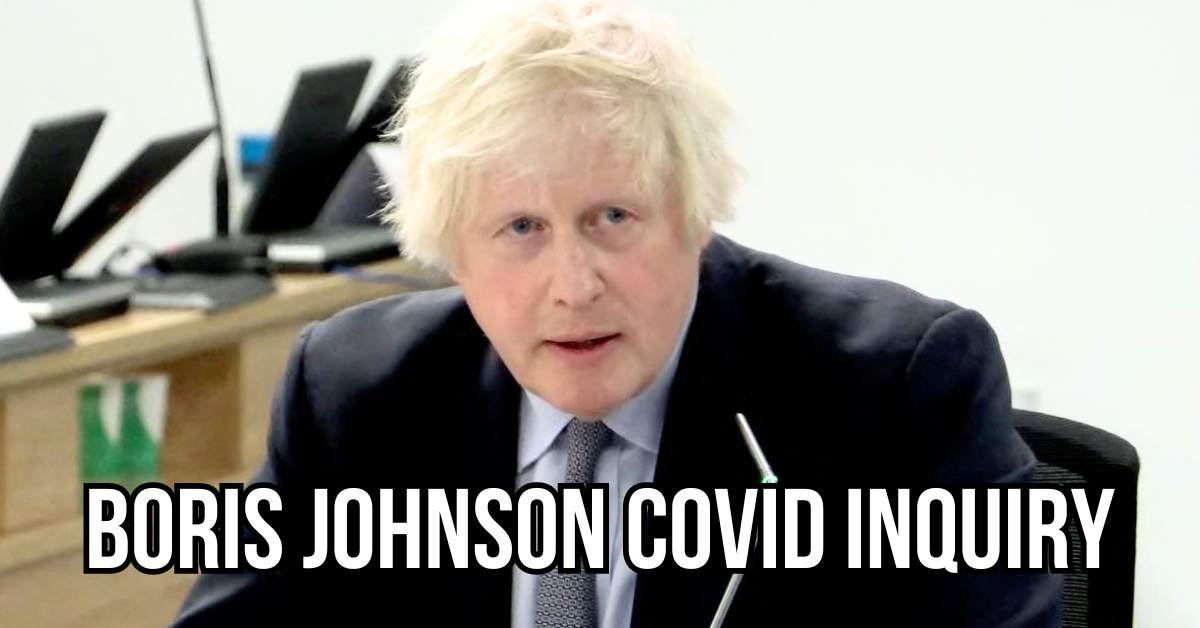In a riveting turn of events, former UK Prime Minister Boris Johnson is set to undergo a two-day grilling at the Covid inquiry, providing a chance for him to defend and reflect on his government’s handling of the unprecedented pandemic. The inquiry, which has already witnessed scathing criticism from former colleagues, promises to unravel the intricacies of decision-making during the crucial days of the crisis.
Johnson is expected to kick off his appearance with a candid apology, acknowledging that his government made mistakes along the way. Yet, sources close to the former Prime Minister suggest he will stand firm on the assertion that he made critical decisions that ultimately saved lives. It’s a delicate balancing act between regret and resilience.
The inquiry has become a stage for former colleagues to air their grievances, with Johnson’s ex-communications director, Lee Cain, deeming the pandemic as the “wrong crisis” for Johnson’s particular skill set. Accusations of dithering and delay on crucial decisions have been echoed, painting a picture of a leader seemingly out of his depth.
Sir Patrick Vallance, the former chief scientific adviser, went a step further, claiming that Johnson was “bamboozled” by scientific data. Even Johnson’s ex-chief adviser, Dominic Cummings, known for his candid remarks, reiterated his past criticisms, referring to Johnson as “the trolley” due to his tendency to veer unpredictably in his decision-making.
However, not everyone is singing the same tune. Levelling Up Secretary Michael Gove countered claims that Johnson was “incapable of making decisions,” asserting that the former Prime Minister preferred a form of “gladiatorial decision-making” where opposing arguments were presented for his consideration.
Check out some of our other recent articles that you must read:
- Andrew Shue and Marilee Fiebig Find New Beginnings
- Angelina Jolie’s Candid Reflection on Hollywood: A Journey of Authenticity and Self-Discovery
Former health secretary Matt Hancock took a swing at Cummings, alleging a power grab and the creation of a “toxic” culture that hindered the government’s pandemic response. The stage is set for a clash of perspectives.
Now, Boris Johnson finds himself in the spotlight, poised to provide his version of events. A spokesman for Johnson expressed eagerness to assist the inquiry, emphasizing the importance of the process.
Yet, the scrutiny doesn’t stop there. Covid-19 Bereaved Families for Justice UK, representing those who lost loved ones to the virus, hopes to challenge Johnson on what they deem “clear falsehoods.” Questions linger, with individuals like Lorelei King, who lost her husband Vince to Covid-19, wanting to understand why Johnson didn’t act more swiftly in implementing the first lockdown in March 2020.
Helen Brewer, who lost her mother Dilys, raises a haunting query about whether Johnson uttered the chilling words “let the bodies pile high.” Johnson has vehemently denied making such remarks, but the inquiry remains a forum for seeking truth and closure.
In a curious twist, Johnson’s written statement, spanning around 200 pages, has already been submitted to the inquiry. However, a significant gap remains as Johnson has been unable to provide communications from February to June 2020, a pivotal period surrounding the first lockdown.
The inquiry, seeking comprehensive insights into UK government decision-making, has requested crucial WhatsApp messages from Johnson. Yet, it was reported that Johnson faced a technical glitch in accessing messages on an old phone used before May 2021, leaving a void that has raised eyebrows.
Labour shadow cabinet minister Nick Thomas-Symonds expressed disappointment, emphasizing the bereaved families’ right to full disclosure. Johnson’s spokesperson denied any message deletions, attributing the issue to a technical glitch that the team is actively addressing.
As the Covid inquiry unfolds, the nation watches with bated breath, hoping for clarity, accountability, and a deeper understanding of the decisions that shaped the pandemic response. Boris Johnson, once the captain navigating uncharted waters, now stands before the inquiry, with the weight of a nation’s questions upon him.
